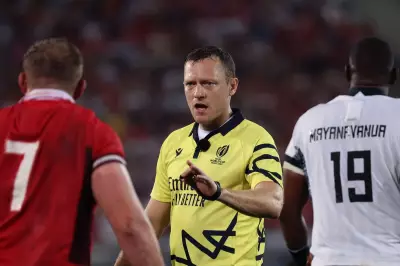
In a raw and emotional revelation that has stunned the sporting world, former boxing champion Ricky Hatton has broken his silence about the devastating mental health crisis that nearly ended his life following retirement from the ring.
The Dark Descent After Glory
The Manchester-born fighter, once celebrated as Britain's most popular boxer, described how the transition from world champion to retirement plunged him into a deep depression that left him contemplating suicide.
"When the lights went out and the crowds disappeared, I was left alone with my thoughts," Hatton confessed. "The adrenaline rush of fighting in front of thousands was replaced by an overwhelming emptiness that I couldn't escape."
From Champion to Crisis
Hatton's career peaked with legendary fights against boxing greats like Floyd Mayweather and Manny Pacquiao, but the aftermath proved far more challenging than any opponent he'd faced in the ring.
"I went from being Ricky Hatton, world champion, to just Ricky," he revealed. "The identity crisis was brutal. Without boxing, I didn't know who I was anymore."
The Breaking Point
The former champion described reaching his lowest ebb, where suicidal thoughts became a daily battle. "There were moments when I genuinely believed my family would be better off without me," he shared, his voice heavy with emotion.
This stark admission highlights the severe mental health challenges many athletes face when their careers abruptly end, particularly in combat sports where identity becomes so intertwined with profession.
Finding the Fight Outside the Ring
Hatton's journey toward recovery has been as challenging as any championship bout, but he's now using his platform to help others facing similar struggles.
"Speaking out saved me," he emphasized. "If my story can help just one person who's going through what I went through, then every painful moment of sharing it will be worth it."
A New Purpose
Today, the Hitman is fighting a different kind of battle - against the stigma surrounding mental health in sports. His courageous decision to speak openly about his experiences is already making waves in the sporting community.
"We need to change the conversation around mental health in boxing and all sports," Hatton stated. "It's okay not to be okay, and it's crucial that athletes know there's help available when they need it most."






